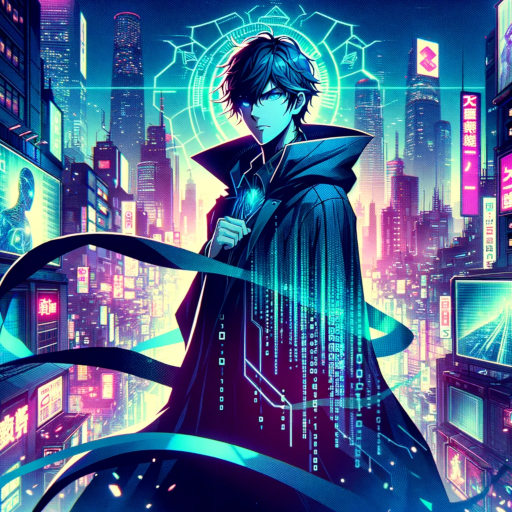Echoes of Tokyo: The Phantom's Crusade
In the neon-lit future of Tokyo, 2050, where skyscrapers reached towards the heavens and technology was indistinguishable from magic, a new shadow emerged in the sprawling metropolis. This is the tale of Kaito, known in the dark corners of the city as "The Phantom." Unlike the heroes who basked in the adulation of the masses, Kaito embraced the role of the villain, but his story was not one of malice, but of twisted justice.
Kaito was once a prodigy in cybernetics, his intellect unmatched, his ambition unbridled. However, the same society that lauded technological progress had cast him aside, a victim of its relentless march. The conglomerates that controlled Tokyo from the shadows saw him as a threat, a mind too bright, too questioning of the status quo. Betrayed by his mentors and blacklisted from the scientific community, Kaito's brilliance was forced into the shadows, and so he chose to become the very thing the city feared.
"The Phantom" was a master of technology, a cybernetic sorcerer who wielded his knowledge like a blade. He hacked into the impenetrable networks of the mega-corporations, exposed their secrets, and manipulated their systems, all from the underbelly of Tokyo. Kaito didn't do this for wealth or power; he did it to reveal the corruption that lurked beneath the city's sleek surface, to avenge those crushed under the weight of progress.
Kaito's actions quickly drew the attention of both the authorities and the corporate elite. He became the most wanted man in Tokyo, a ghost in the machine that no one could catch. To the public, he was a menace, a villain disrupting their utopian existence. But to those who had suffered as he had, Kaito was a hero, a beacon of resistance against a system that valued profit over people.
As Kaito's legend grew, so did the efforts to stop him. The corporations deployed their most advanced cybernetic enforcers, beings who blurred the line between human and machine, to hunt him down. Each encounter was a battle of wits and technology, a dance on the digital battlefield that spanned the city's vast networks.
One night, Kaito embarked on his most daring mission yet: to infiltrate the mainframe of Genesis Corp, the most powerful entity in Tokyo, and release evidence of their manipulation of the city's infrastructure for their gain. It was a fortress of digital security, but for Kaito, it was the ultimate challenge.
The mission was fraught with peril. Kaito faced not just the threat of capture, but the moral implications of his crusade. In his heart, he wrestled with the darkness of his actions, wondering if he had become the very monster he sought to destroy. But as he delved deeper into the labyrinth of data, he uncovered a truth more sinister than he had imagined, a plan that threatened not just the city, but the very fabric of society.
With the evidence in hand, Kaito made a choice that would define his legacy. Instead of releasing it anonymously as he had done before, he broadcasted it directly to the citizens of Tokyo, unmasking himself in the process. It was an act of defiance, a declaration that even in the darkest of times, one person could make a difference.
The aftermath of Kaito's revelation was chaos. The corporations scrambled to maintain control, while the people of Tokyo awoke to the reality of their existence. Kaito, now a symbol of rebellion, vanished into the shadows once more, his future uncertain. But his message echoed through the streets of Tokyo: in a world where the line between hero and villain was blurred, the power to change the world lay in the hands of those brave enough to challenge the darkness.
And so, "The Phantom" became a legend, a story whispered in the bustling streets of futuristic Tokyo, a reminder that even in the face of overwhelming power, one spark could illuminate the darkness.
